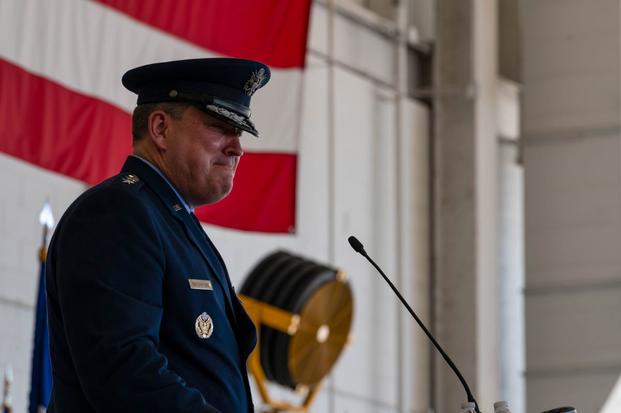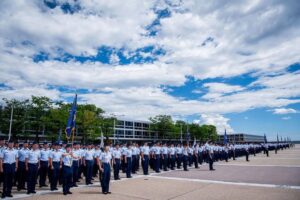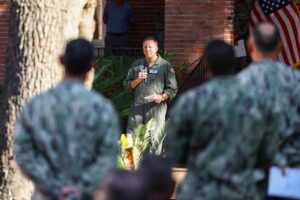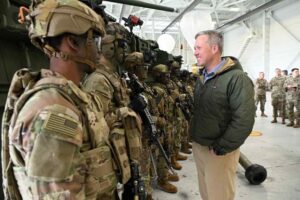Uncertainty Looms at Air Force Academy Amid Anticipated Staff Reductions
With a backdrop of uncertainty, the Air Force Academy is navigating potential faculty and staff layoffs while assuring incoming cadets of the quality education they will receive. Although steps are being taken to manage changes, a clear plan for workforce reductions remains in development.
As part of an effort to reduce civilian positions, approximately 140 academy employees have voluntarily resigned through federal deferred resignation programs. However, more layoffs are expected, potentially impacting academic programs and graduation requirements, according to internal communications and faculty members who attended recent briefings.
Superintendent Lt. Gen. Tony Bauernfeind highlighted during an April 11 presentation that the Air Force is set to eliminate 5,000 civilian roles under the 2025 National Defense Authorization Act. Bauernfeind anticipates cutting 240 civilian positions at the academy, yet it is unclear if the 140 voluntary resignations will be included in this total. Faculty remain uncertain about when further updates on layoffs will be provided.
In response to inquiries, the academy stated it is actively planning to maintain accreditation and a diverse selection of majors, though final resignation or retirement figures remain undetermined. Presently, cadets are required to complete 125 credit-hours for a Bachelor of Science degree, which might be reduced to 120 credit-hours. For comparison, the University of Colorado Boulder mandates 128 credit-hours for a similar degree.
“We remain committed to delivering world-class military training, academics, and athletics, while sustaining and protecting our facilities and installation,” the academy stated.
Bauernfeind acknowledged the impact of workforce reductions on the academy, which employed about 1,360 civilians in January. Civilian staff occupy various roles in academic administration, communications, finance, and child care, as well as faculty positions. During the April 11 briefing, Air Force Chief of Staff Gen. David Allvin was quoted as saying organizations might resemble “Swiss cheese” due to staffing cuts.
Bauernfeind also noted that the academy’s civilian employment budget has been exceeded for some time, and the Air Force is no longer willing to cover the excess. The reduction in spending is seen as necessary to address national debt and fund initiatives such as the new F-47 fighter aircraft program.
However, some faculty members, speaking anonymously, expressed skepticism about the financial justifications, citing a 2013 Rand study. The study found civilian faculty to be more cost-effective, experienced, and academically connected than their military counterparts. At that time, the Air Force faced challenges in staffing the academy with officers who held the requisite academic credentials.
The academy’s faculty includes 491 members, with 308 military personnel and 183 civilians, as reported earlier. Concerns have been raised about the potential loss of highly qualified instructors and its impact on the school’s accreditation and student retention.
In a letter to incoming students, Bauernfeind reassured them of the academy’s dedication to providing a “world-class education” in a vibrant, accredited environment with a range of classes and majors. Yet, uncertainty lingers regarding the fall academic schedule, and the registration deadline for fall classes was extended from April 11 to the following Friday.
A civilian professor, reflecting on his two-decade tenure, remarked that such a preemptive communication to prospective students was unprecedented, adding, “It’s not something you would expect to hear from a high-quality institution.”
© 2025 The Gazette (Colorado Springs, Colo.). Visit www.gazette.com. Distributed by Tribune Content Agency, LLC.
© Copyright 2025 The Gazette (Colorado Springs, Colo.). All rights reserved. This material may not be published, broadcast, rewritten or redistributed.











